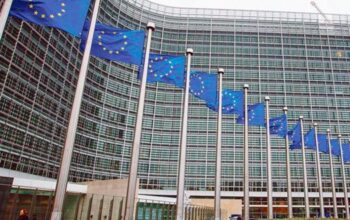The recent decision by the Republika Srpska National Assembly to hold a referendum in the entity on the decrees of the High Representative has drawn vehement criticism from many quarters. However, the government of Republika Srpska holds that the people of both entities have an absolute right to conduct referenda, and that nothing about the proposed referendum is illegal of contrary to the spirit of the Dayton Accords.
I. Introduction
The Government of Republika Srpska (“the Government”) fully supports the Dayton Accords – including the Constitution of Bosnia and Herzegovina (“BiH”) – and is committed to the rule of law and respect for human rights. These principles, and the Government’s responsibility to its citizens, have compelled it to protect the Republika Srpska and its citizens from the unlawful actions of the High Representative, who has frequently violated the Dayton Accords, the rule of law, and human rights.
The High Representative’s legal mandate is established by the agreement set out in Annex 10 of the Dayton Peace Accords. Annex 10 does not remotely suggest that the High Representative has the power to enact law by decree, overturn acts of parliament and institutions duly arrived at by elected representatives, amend constitutions, overturn court decisions, impose new institutions, transfer constitutional competencies, remove and ban judges and other public officials and employees, freeze assets, or restrict travel – all without any due process or appeal. Nor do any other legal instruments, including UN Security Council resolutions. Nonetheless, the High Representative has carried out such activities by decree on BiH, its Entities, and their citizens.
On 13 April 2011, the RS National Assembly (“RSNA”) approved plans for a referendum to allow the citizens of the RS to express their views on laws decreed by the High Representative, including those pertaining to Court of BiH and the BiH Prosecutor’s Office. Some in the international community have suggested that the RS is planning a secession referendum or that a referendum asking the citizens views on the High Representative is somehow in violation of the Dayton Accords. This is false. The Government has stated publically and privately that the referendum is not on secession. Additionally, the Dayton Accords do not prohibit referenda and certainly do not restrict citizens’ free speech regarding the High Representative, government institutions, or other political matters. The planned referendum gives RS citizens the opportunity to take part in the Government’s defense of the Dayton Accords.
In scores of speeches and statements, particularly during last year’s election campaign, the High Representative has suggested that the governing officials of BiH and the Entities do not represent their constituents’ views and that the High Representative’s actions are more aligned with their interests. In addition, the High Representative has frequently called on citizens to make their voices heard. Yet the High Representative is now condemning plans for a referendum that would boost government accountability and increase opportunities for RS citizens to make their views known.
Referenda are widely used by governments across Europe and around the world as a mechanism for insuring democratic rule and are permitted by the laws applicable to BIH. It is particularly important for RS citizens to be heard in a country in which a single, unelected, foreign official claims extraordinary peremptory powers free from any review or limits. Any attempt to prevent RS citizens from registering their views in a referendum would be a direct affront to democracy and the rule of law.
II. Legal
A. Legality of referenda in general
Referenda are fully consistent with the Dayton Accords, which contain no provisions that could be interpreted as prohibiting or restricting them. Indeed, the Dayton Accords in Annex 4 (the BiH Constitution), Article I, paragraph 2 requires that BiH “be a democratic state, which shall operate under the rule of law and with free and democratic elections.” The Preamble of the BiH Constitution states: “Convinced that democratic governmental institutions and fair procedures best produce peaceful relations within a pluralist society.” The BiH Constitution also provides, “All governmental functions and powers not expressly assigned in this Constitution to the institutions of Bosnia and Herzegovina shall be those of the Entities.”
Referenda are an integral part of the practice of democratic states across Europe and the world. As the Council of Europe’s Committee of Ministers stated in a 2008 Declaration, “[D]emocracy is one of the foundations of the Council of Europe and . . . it is expressed not only through elections but also through referendums . . . .” In a 2005 Resolution, the Council’s Parliamentary Assembly proclaimed:
Referendums represent a long-standing political tradition in a number of Council of Europe member states; in others, the participation of citizens in the decision-making process through referendums is a more recent achievement, coinciding with their passage to pluralist and representative democracies.”
Similarly, in a 2007 resolution, the Parliamentary Assembly said, “Referendums are an instrument of direct democracy which belong to the European electoral heritage.”
Referenda by sub-state entities are a well-established part of democratic government. The Council of Europe has made clear that its strong support for referenda extends to those held at political subdivisions below the state level.
As the Council of Europe’s Congress of Local and Regional Authorities recognized in a 2007 resolution, “referendums, whether at national, local or regional level, constitute one of the main instruments of direct democracy giving citizens the possibility to take part in political decision making as well as in public matters which directly concern them . . . .”
Moreover, the Council’s Committee of Ministers, in Recommendation No. R (96) 2, recommended that member states “acknowledge that local and regional authorities may, within the autonomy granted to them, make provisions for referendums and/or popular initiatives at local level, by specifying, if appropriate, the matters for which these instruments are admitted or forbidden as well as the consultative or decisionmaking character of the referendums . . . .”
In its 2001 Recommendation to member states on the participation of citizens in local public life, the Council’s Committee of Ministers recommended that states consider legislation enabling:
ii. popular initiatives, calling on elected bodies to deal with the matters raised in the initiative in order to provide citizens with a response or initiate the referendum procedure;
iii. consultative or decision-making referendums on matters of local concern, called by local authorities on their own initiative or at the request of the local community . . . .”
The Constitution of Republika Srpska has long specifically provided for referenda, stating at Article 77 that the RSNA may decide on individual issues after a vote of the citizens in a referendum. Article 70 of the RS Constitution gives the RSNA the power to organize a referendum. Moreover, the RS has had a statute providing for referenda since 1993.
B. Legality of the planned referendum
There is nothing in the nature of the RS’s planned referendum that would somehow render it unlawful. The planned referendum solicits voters’ views about the High Representative’s imposition of laws on BiH by decree, including the laws regarding the Court of BiH and Prosecutor’s Office of BiH.
The proposed referendum is plainly suitable under the Council of Europe’s standard. The Council’s Parliamentary Assembly, in Resolution 1121, invited member states:
to regard all subjects as suitable for being submitted to a referendum, with the exception of those which call in question universal and intangible values such as the human rights defined in the Universal Declaration of Human Rights and the European Convention of Human Rights, and the basic values of democracy in general and parliamentary democracy in particular.
The proposed referendum certainly does not in any way question universal intangible values such as human rights or the basic values of democracy in general and parliamentary democracy in particular. Indeed, the proposed referendum is intended as an affirmation of representative democracy and human rights against a High Representative who shows them little regard.
III. Policy
A. The RS’s 2010 referendum law
The referendum law enacted by the RSNA on 10 February 2010 was drafted in light of the Code of Good Practice of the Council of Europe’s Venice Commission (CDI AD 2007-2008) and the Recommendations of the Council of Europe’s Committee of Ministers on citizens’ participation in public life at the local level (Rec (2001) 19). In addition, as required by RS Government rules of procedure, the RS Ministry for Economic Relations and Regional Cooperation analyzed the referendum legislation with respect to its consistency with EU regulations. After examining EU law, the Ministry determined that there are no sources of acquis communautaire pertinent to the legislation.
The Council’s Parliamentary Assembly, in a 2005 resolution, recommended “the use of referendums as a means to reinforce the democratic legitimacy of political decisions, enhance the accountability of representative institutions, increase the openness and transparency of decision making and stimulate the direct involvement of the electorate in the political process.” In the same resolution, the Parliamentary Assembly said it “considers referendums as one of the instruments enabling citizens to participate in the political decision-making process . . . .”
In a 2007 resolution, the Council’s Parliamentary Assembly called referenda “a positive means to enable citizens to participate in the political decision-making process and to bridge the distance between them and decision makers.” The Parliamentary Assembly, in a 2003 resolution, called on member states to consider “more direct elements of democratic decision-making, such as popular initiatives and referendums, in particular at local level, as a means of increasing the public’s identifying with political decisions thus taken.”
B. The planned referendum
It is all the more important for citizens to be heard in a country in which a single, unelected official claims and exercises such extraordinary peremptory powers. The High Representative, like most rulers who claim unbridled power, is intolerant of any suggestion – no matter the source – that his authority has limits. For example, in a 2006 decision, the BiH Constitutional Court unanimously held that the High Representative’s decrees summarily removing individuals from public office violate the BiH Constitution and human rights protected under the European Convention on Human Rights. In response to that decision, the High Representative issued an order purporting to overrule the Constitutional Court decreeing that “any proceeding instituted before any court in [BiH], which challenges or takes any issue in any way whatsoever with one or more decisions of the High Representative, shall be declared inadmissible unless the High Representative expressly gives his prior consent.” The High Representative has also sought to halt criticism of his unlawful acts by the Government and the RSNA. All of this makes it essential that the citizens of Republika Srpska have a mechanism through which to be heard.
IV. Conclusion
Peremptory authority to set aside the decisions of democratically and constitutionally selected legislatures, as exercised by an unelected, foreign individual – the High Representative – is inimical to democratic and constitutional governance. It is the High Representative’s assertion of unlimited powers that is the real affront to the Dayton Accords and the principles of democracy and rule of law that the Accords affirm. With its planned referendum, RS citizens will have an opportunity to make their voices heard about the High Representative’s actions.


